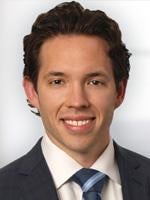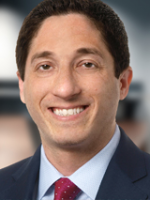On February 22, 2021, the United States Supreme Court declined to review two False Claims Act (FCA) cases, solidifying a split that pits the Eleventh Circuit against the Third and Ninth Circuits as to whether a disagreement over a physician’s clinical judgment can serve as a basis for establishing “falsity” under the FCA. Specifically, the Eleventh, Third and Ninth Circuits have each rendered decisions about the need to demonstrate objective falsity, and whether a reasonable difference of opinion between physicians is sufficient to trigger FCA liability.
Objective Falsity and a Divide Among the Circuits
For decades, FCA litigants have battled over whether a difference of opinion – including disagreements over medical decision-making – can serve as a basis for establishing falsity. Opponents continue to argue, with varying degrees of success, that a claim is “false” only where there is an objectively false statement or representation based on the presence of an objective falsehood or lie. Three recent cases analyzing the FCA’s falsity element through the lenses of physicians’ clinical judgement have added to a growing divide on the applicable standard for liability.
In 2019, the Eleventh Circuit held in United States v. Aseracare that a hospice provider’s claim cannot be “false” unless the physician’s clinical judgment regarding terminal prognosis fails to reflect some objective falsehood. The court concluded that a reasonable difference of opinion between physicians concerning a patient’s terminal prognosis, without more, amounted to a subjective disagreement and was insufficient for FCA liability. In reaching its conclusion, the Aseracare court explained that “a properly formed and sincerely held clinical judgment is not untrue even if a different physician later contends that the judgment is wrong.”
Then, on March 4, 2020, in United States ex rel. Druding v. Care Alternatives the Third Circuit declined to apply the objective falsity standard articulated in Aseracare, holding instead that a hospice provider's Medicare claims can be “false” under the FCA based on a plaintiff's medical expert testimony. The Third Circuit explained that by introducing a conflicting expert opinion questioning the certifying physician’s prognosis of terminal illness, the plaintiff created a genuine dispute of material fact sufficient to survive summary judgement and presented a triable issue for a jury to resolve.
Finally, on March 23, 2020, the Ninth Circuit similarly held the FCA does not require proof of an objective falsehood. In United States ex rel. Winter v. Gardens Regional Hospital & Medical Center, Inc., the Ninth Circuit concluded that false certifications of medical necessity can give rise to FCA liability and accepted the plaintiff’s after-the-fact assessments challenging the medical necessity of inpatient hospital admissions. The Winter’s court reasoned that AseraCare was “not directly contrary” to its holding because AseraCare recognized that the objective falsehood standard did not necessarily apply to medical necessity certifications, and AseraCare only considered whether reasonable disagreements between physicians could prove falsity.
Defendants in the Druding and Winter cases both petitioned to the United States Supreme Court to decide whether an objectively false statement is required to establish FCA liability and whether differences in opinion among physicians may render a claim “false” under the FCA. By refusing to hear arguments in either case and resolve the split between the Eleventh, Third and Ninth Circuits, the Supreme Court has passed on an opportunity to set a national standard as to this consequential issue.
Key Takeaways
-
While Aseracare, Druding and Winter address physicians’ clinical judgments in certifying patients as terminally ill under the Medicare hospice benefit or certifying the medical necessity of inpatient hospitalizations, their application is far-reaching and covers any items or services included on claims submitted to Medicare.
-
Given the circuit split, health care providers should be knowledgeable as to whether courts in their jurisdiction – or jurisdictions where they may be forced to litigate - require proof of objective falsity or not.
-
In some circuits, the Government or a whistleblower may overcome a provider defendant’s motion to dismiss or motion for summary judgment simply by introducing testimony from a medical expert that conflicts with the judgement of a treating or certifying physician. This emphasizes the need for providers to conduct sufficient discovery, and aggressively file motions that will limit or eliminate those conflicting expert opinions.
-
Additionally, a provider’s ability to demonstrate that any clinical opinions or medical judgements were reasonable, sincerely held and informed by consideration of all relevant facts, is now critically important. The available medical record documentation as well as testimony from the treating or certifying physician helps to advance those arguments.






 />i
/>i
